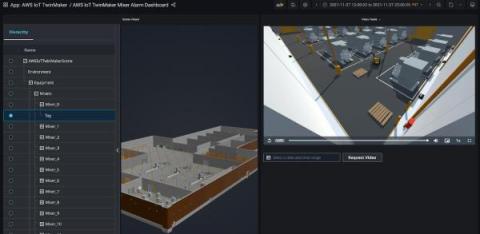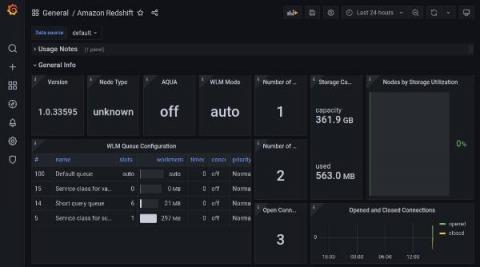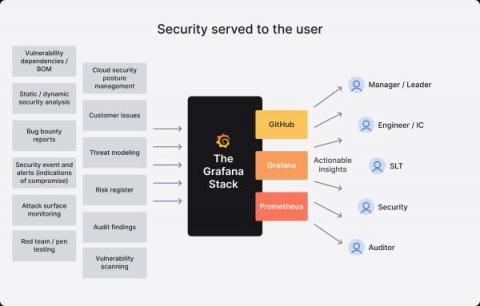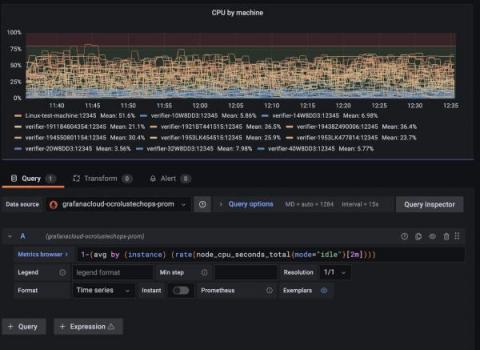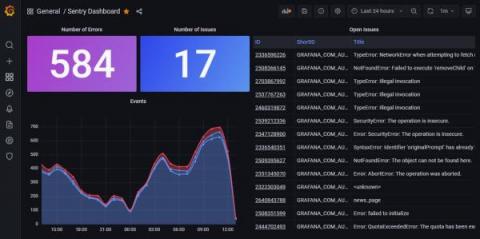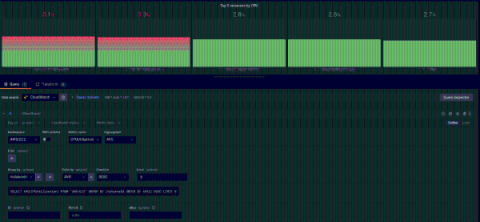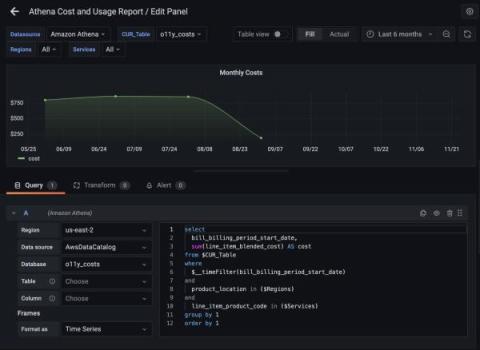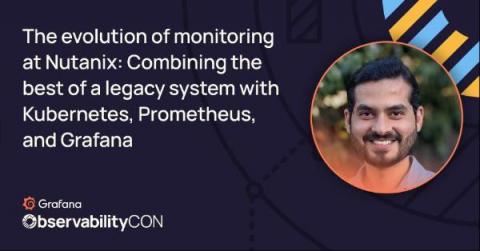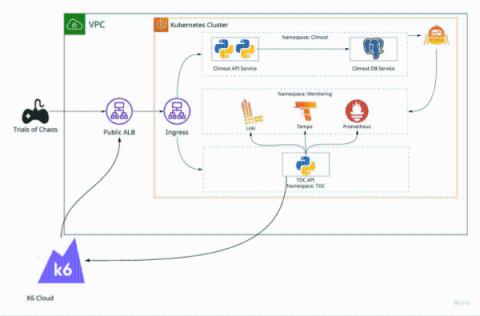Operations | Monitoring | ITSM | DevOps | Cloud
Grafana
How Grafana powers the dynamic visualizations of IoT data for AWS IoT TwinMaker
At re:Invent this year, AWS announced its new digital twin service, AWS IoT TwinMaker (in preview), which allows users to create digital twins of real-world systems like buildings, factories, industrial equipment, and production lines. Using a digital twin to monitor and improve operations for a physical system requires ingesting data from IoT sensors, process instruments, cameras, and enterprise systems, and curating and associating data from these disparate sources.
Monitor all your Redshift clusters in Grafana with the new Amazon Redshift data source plugin
In collaboration with the AWS team, we have recently released the new Redshift data source plugin for Grafana. Amazon Redshift is the fastest and most widely used cloud data warehouse. It uses SQL to analyze structured and semi-structured data across data warehouses, operational databases, and data lakes by using AWS-designed hardware and machine learning.
The values behind scaling cloud native security at Grafana Labs
On Nov. 8, I started as the new Chief Information and Security Officer at Grafana Labs. In my first five weeks, I’ve met about 100 really amazing people; learned and absorbed early lessons about our workplace culture; kicked off working groups for our 2022 initiatives (bug bounty FTW); and contributed to tackling our first-ever 0day. Amid all of that, I’ve also been doing a lot of thinking.
Monitoring remote user workstations with Prometheus, Ansible, and Grafana Cloud
Monitoring is usually associated with servers and applications, but the fintech automation platform Ocrolus recently needed to set up monitoring for a different purpose: to gain meaningful data and insights about nearly 1,000 remote user workstations.
Introducing the Sentry data source plugin for Grafana
We’re thrilled to announce the addition of the Sentry data source plugin to Grafana. Grafana Labs worked in partnership with Sentry, the code observability platform, to help development teams see the issues that matter and solve them faster — across their entire tech stack — so they can remove silos and ship with confidence.
Identify operational issues quickly by using Grafana and Amazon CloudWatch Metrics Insights
Amazon CloudWatch has recently launched Metrics Insights (Preview) — a fast, flexible, SQL-based query engine that enables you to identify trends and patterns across millions of operational metrics in real-time. With Metrics Insights, you can easily query and analyze your metrics to gain better visibility into the health and performance of your infrastructure and large scale applications.
Query and analyze Amazon S3 data with the new Amazon Athena plugin for Grafana
In collaboration with the AWS team, we have recently released the new Athena data source plugin for Grafana. Athena is an interactive serverless service that makes it easy to analyze data in Amazon S3 using standard SQL. Athena supports a wide variety of data formats including CSV, JSON, ORC, Arvo, and Parquet. Athena also integrates with AWS Glue Data Catalog, which allows you to create tables and query data based on a central metadata store of many AWS services, such as CloudFront, ELB, and more.
Unifying VM and microservice monitoring with Kubernetes, Prometheus, and Grafana
According to a 2020 CNCF survey, the use of containers in production has been rapidly increasing for the past several years. Nutanix, a global leader in cloud software and a pioneer in hyperconverged infrastructure solutions, is part of that trend.
Testing shift left observability with the Grafana Stack, OpenTelemetry, and k6
Development is no longer a linear journey from point A to point B. As more projects shift into a state of organic growth, user feedback and constant experimentation are increasingly becoming the norm, if not the standard for engineering. “In order to support this rapid experimentation, we’re beginning to embrace new working methods and practices,” said Vinodh Ravi, Executive Director of Platform Engineering at JPMorgan Chase.



